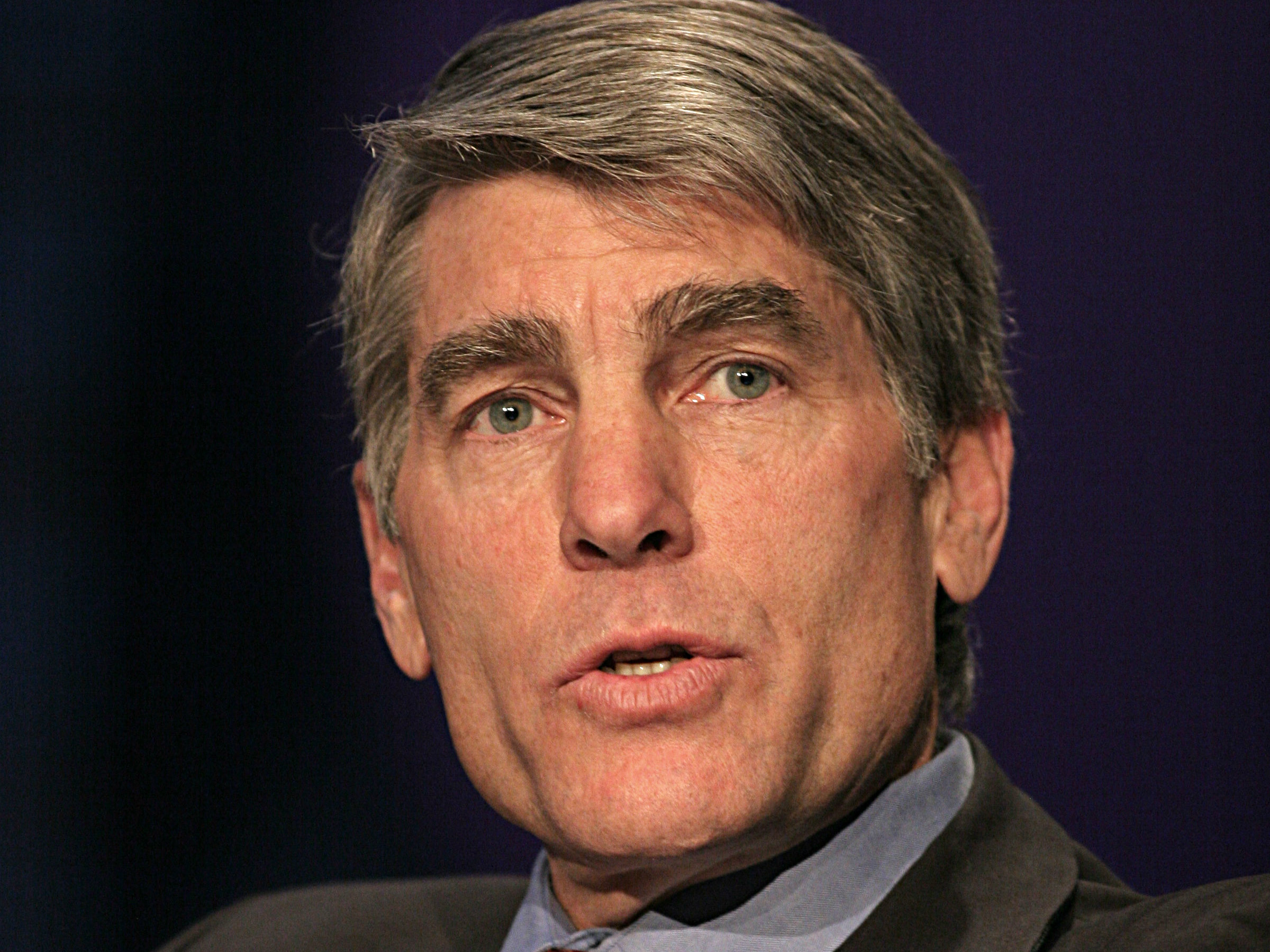
For the first time, President Barack Obama is inching into one of the highly competitive races that could determine whether Democrats maintain control of the Senate this fall. Obama's trip to Colorado to raise money for Sen. Mark Udall underscores the political risks for vulnerable Democrats of being linked with the increasingly unpopular president.
Obama will headline a high-dollar fundraiser for Udall in Denver on Wednesday but the event is off-limits to news cameras. Udall's office also says the senator will not attend an economic speech the president plans to deliver in Denver, ensuring that there will be no photos of the two men together.
Republicans quickly pounced on Udall's plans, eager to link the incumbent to a president with sagging approval ratings, both nationally and in Colorado.
"Sen. Udall's message to the president is clear: help me rake in campaign cash behind closed doors, keep the media from capturing photos of us together, and avoid real Coloradans at all costs," said Alex Siciliano, a spokesman for Rep. Cory Gardner, Udall's opponent in the November election.
Udall is one of several Democratic senators at risk of losing their seat this fall, putting Senate control within GOP reach for the first time during Obama's presidency. Losing control of the Senate would be devastating to Obama's chances of passing any major legislation in his final two years in office, though his prospects may be little better if Democrats hang on to the Senate and Republicans maintain their majority in the House.
 While Obama has called keeping the Senate one of his top priorities, he is limited in how much direct involvement he can have in helping the most at-risk members of his party. Like Udall, most are from swing states or conservative-leaning states like Louisiana, Arkansas and North Carolina, where close ties with the president may be more of a hindrance than a help.
While Obama has called keeping the Senate one of his top priorities, he is limited in how much direct involvement he can have in helping the most at-risk members of his party. Like Udall, most are from swing states or conservative-leaning states like Louisiana, Arkansas and North Carolina, where close ties with the president may be more of a hindrance than a help.
So far, the vulnerable Senate Democrats has put some distance between Obama and their campaigns. But with Wednesday's fundraiser, Udall is breaking the ice, albeit tepidly.
Tickets to the lunch cost up to $15,000 per couple, with the money split between Udall's campaign and the Democratic Senatorial Campaign Committee. While Obama has attended numerous events for the DSCC, Wednesday's event marks the first time he has appeared directly on behalf of an endangered Democrat.
Some reporters will be in the room for Obama's remarks, but no cameras are allowed and the journalists will be kicked out during the president's question-and-answer session with donors. The arrangement is typical of most of Obama's smaller sessions with donors.
Udall consultant Mike Stratton said the campaign saw no reason to avoid a fundraiser with Obama.
"If the president is in town, and the president wants to be helpful, why would anyone want to pass that up?" he said. "I don't think one visit by the president is going to change anything in terms of the dynamics of the campaign."
While Obama's approval rating has slipped into the low-40s, he remains a prolific fundraiser for Democrats. And with the Colorado Senate race expected to be one of the most expensive in the country, Udall wants to maintain a financial edge over his challenger.
Gardner, who only announced his Senate bid in late February, raised $3.7 million as of June 24, well short of Udall's $12 million haul.
Even with a fundraising boost, Udall's appearance with Obama creates some awkwardness. Udall has tried to define himself as an independent-minded politician, touting his criticism of the Obama administration's surveillance programs. In a television interview in January, Udall declined to say whether he wanted Obama to campaign for him.
Meanwhile, Republicans in Colorado have made tying Udall to Obama a core part of their strategy. And a glimpse at the president's poll numbers in the state make clear why. A recent Quinnipiac University Poll put Obama's approval rating in Colorado at a measly 38 percent.
Obama advisers expect the president will do more campaigning for individual candidates as the election nears. But the White House's broader strategy for the midterms has been to do no harm to vulnerable Democrats, even if that means Obama keeps his distance.
So far, that appears to be the preferred approach for most Democrats in tough races.
Alaska Sen. Mark Begich has said he is "not really interested" in campaigning with Obama, and he reminds reporters that he won in 2008 while Obama was losing the state by 21 percentage points.
In North Carolina, a spokeswoman for Sen. Kay Hagan said no presidential visits were scheduled but added that "President Obama is welcome to come to North Carolina any time, including for our campaign." However, Hagan was absent when Obama visited Raleigh in January.
Obama has had occasional contact with vulnerable Democrats in their home states, but not for campaign purposes. In May, he spent several hours with Arkansas Sen. Mark Pryor touring damage from a tornado that devastated swaths of the state. And in November, Louisiana Sen. Mary Landrieu got a ride from Washington to New Orleans with Obama on Air Force One, then skipped the event he had scheduled in her hometown.








